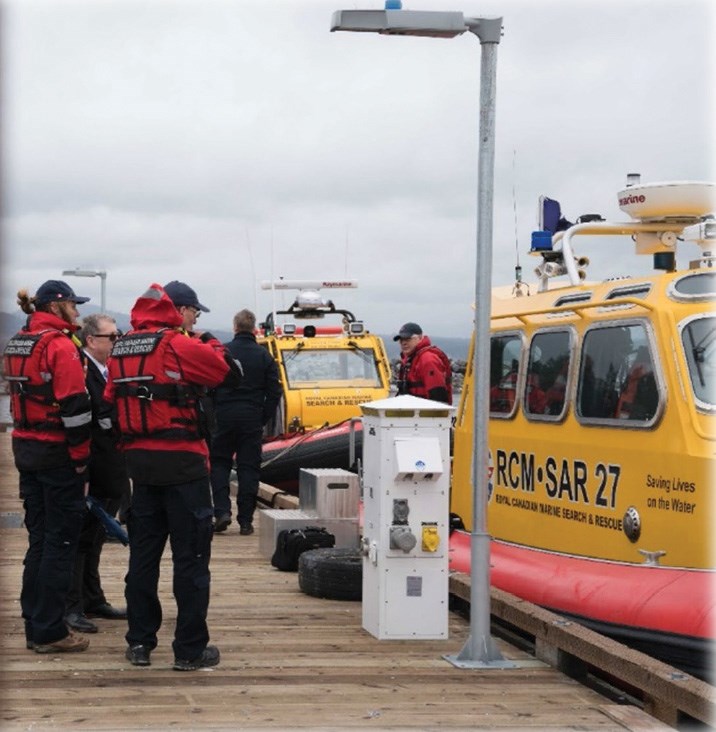A Senate committee is recommending more support for Coast Guard auxiliary agencies such as Royal Canadian Marine Search and Rescue (RCM-SAR).
The recommendations are part of the report When Every Minute Counts: Maritime Search and Rescue, released Nov. 29 by the Senate Committee on Fisheries and Oceans.
The report looks at the full-time, professional Coast Guard and Canadian Armed Forces search and rescue infrastructure throughout the country as well as the volunteer auxiliaries.
Included in the 17 recommendations is a call to make the Coast Guard “a separate statutory agency reporting to the Minister of Transport,” similar to the way it operated before 1995, and that Transport Canada shift responsibility, and funding, for recreational boating safety to the Coast Guard.
There are three RCM-SAR stations serving the Sunshine Coast – Gibsons, Halfmoon Bay and Pender Harbour – and the recommendations that could have the greatest impact on the local RCM-SAR units include a call for an increase in the roughly $5.5 million in direct funding to keep up with rising operational and training costs.
The committee has also recommended the creation of a Maritime Search and Rescue Fund to “support the purchase of equipment and services needed by regional Canadian Coast Guard auxiliary organizations” and that the Coast Guard “assist regional Canadian Coast Guard auxiliary organizations to diversify their funding sources.”
Sen. Marc Gold, vice chair of the committee, told Coast Reporter that the Sunshine Coast and other southern B.C. communities are lucky to have very active volunteer units that get a lot of public support – especially when fundraising for something like a new boat.
“Some auxiliaries have a greater and more successful tradition of fundraising than others, but the reason they have to fundraise is that their budgets are not adequate to fund capital replacement and sometimes even basic maintenance,” Gold said. “Our recommendations are aimed at trying to get more resources to those upon whom we rely for the important work of maritime search and rescue.”
RCM-SAR chief executive officer Pat Quealey was one of the people who made presentations during the committee’s hearings.
“The report accurately reflects many of the current challenges in the maritime search and rescue environment and recognizes the need to adequately resource capabilities across all relevant organizations as we work together toward a common purpose of saving lives,” Quealey said this week.
“We are glad that the report included two of our key recommendations to adequately fund capital acquisition, vessels and equipment, as well as appropriately reimburse our operational and training readiness expenses.”
Gold said the recommendations were also designed to help with “recruitment and retention” of personnel for the auxiliaries as well as the full-time Coast Guard and Armed Forces.
The federal government isn’t bound by the Senate committee recommendations, but Gold said the committee would be following up on how the Minister of Transport and various agencies respond. “We don’t plan to just issue the report, cross our fingers and hope,” he said.
“We made a very strong effort to make recommendations that we think are practical or doable,” Gold added. “I have every confidence that if these recommendations are put into effect, even if it takes some years to put them into effect, we’ll have done our job to help save Canadian lives.”
Quealey also said RCM-SAR is looking forward to working with the federal government “to bring these recommendations to life.”



